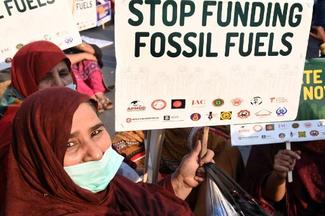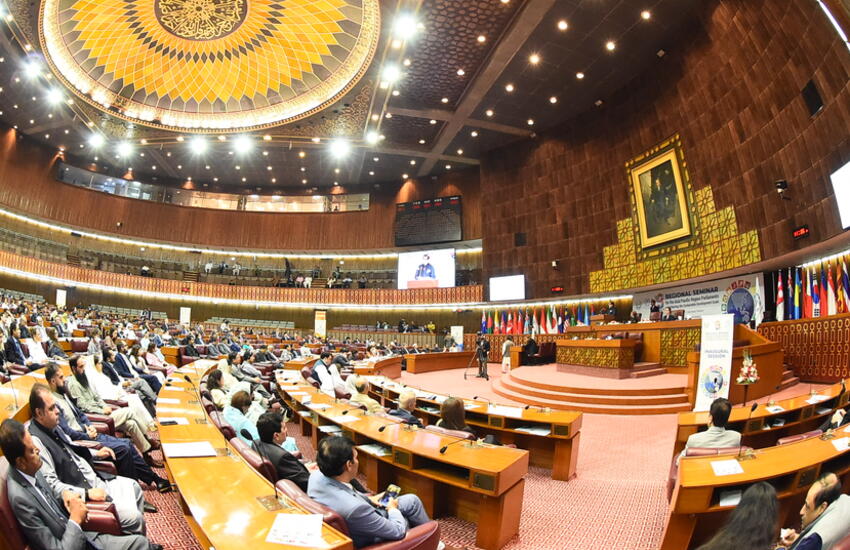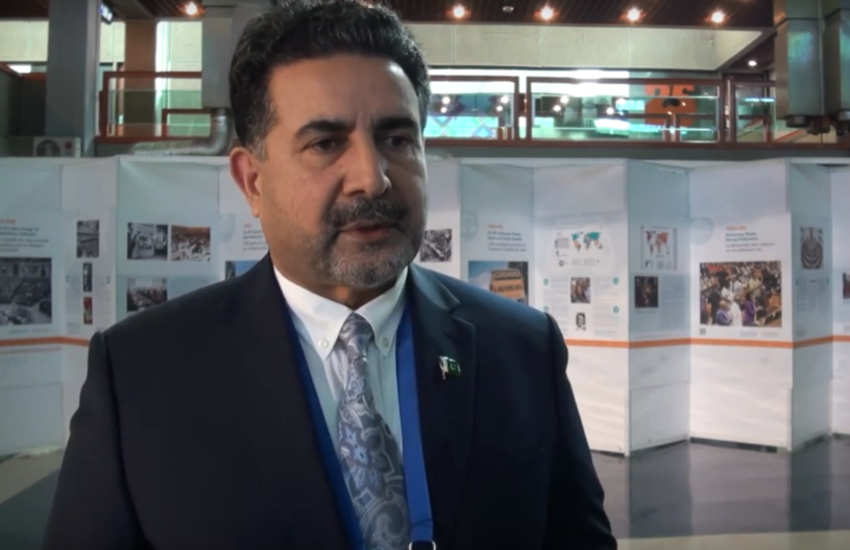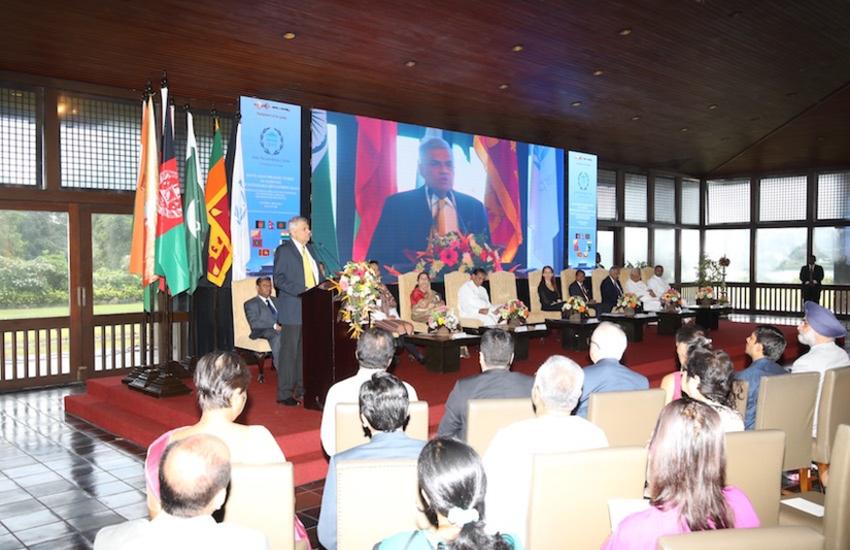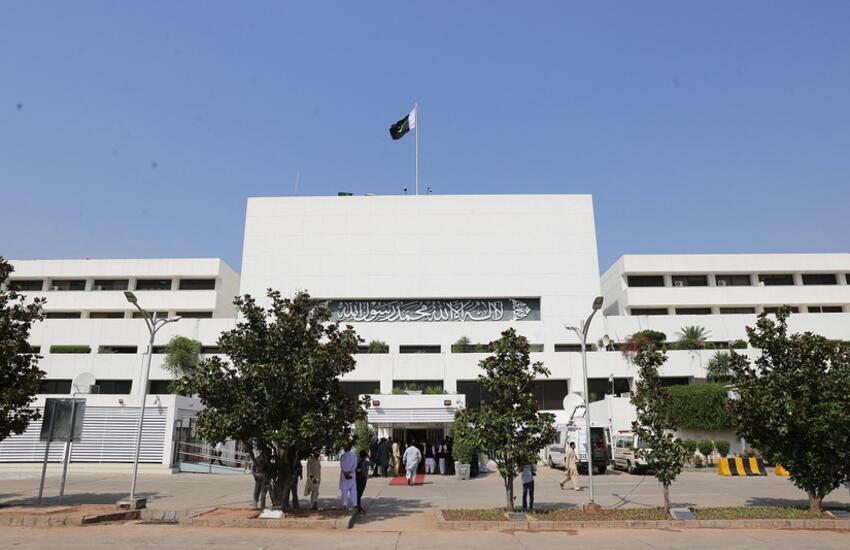In 2016, the National Assembly of Pakistan unanimously adopted a resolution on the 2030 Agenda for Sustainable Development, explicitly recognizing the direct applicability of the SDGs to the national development framework. After adoption of the resolution, the National Assembly established a parliamentary SDGs taskforce. The inclusion of all political parties was instrumental in securing an enabling environment for SDG implementation.
The SDGs Secretariat provides technical assistance and coordination support to parliamentary taskforce members through targeted research, data collection, information‑sharing, communication, advocacy, and media outreach. These activities support a more informed approach towards SDG policy‑making and evidence-based lawmaking. The taskforce plays an important role in promoting the legislative reform agenda and promulgating new legislative initiatives.
SDG integration into parliament’s core functions
Following the adoption of the SDGs, a consultative process identified the most pressing priority areas. These were integrated into national policies and strategies. National and provincial SDG taskforces are responsible for examining whether and how existing or new draft laws incorporate relevant SDG targets, and if necessary, for inquiring into any gaps. The SDGs taskforce has supported the formulation and adoption of multiple legislative initiatives that provide a solid basis for SDG implementation, including on issues such as: decent work opportunities for youth, compulsory immunization, nutrition, prevention of child marriage, maternity and paternity leave, gender equality, anti-harassment, and domestic violence.
Universal health coverage and quality healthcare
Pakistan has set clear targets and timelines to achieve SDG 3. Recent legislative initiatives have aimed to provide accessible and affordable healthcare coverage to the entire population and improve the effectiveness of the monitoring system for healthcare policies. These activities have been supported by an increase in the 2020–2021 federal budget allocation for healthcare, although health expenditure as a percentage of total budget distribution still represents a challenging proportion. In 2018, Parliament passed the Transgender Persons (Protection of Rights) Act. It categorically provides protection to transgender people as a specific vulnerable group that is at risk of being left further behind. The Act advanced their inclusion and equitable treatment and promoted socioeconomic opportunities for their participation in the public sphere. It has been considered one of the most progressive legal instruments in the world, including legal identity registration to access essential healthcare services and psychosocial support.
Disaster risk reduction and climate change measures
Due to its geographical context, Pakistan is very vulnerable to climate change and extreme weather events. It has therefore made available substantial funding for climate change action. By integrating relevant climate change enablers into national policies and planning frameworks, the government has focused strongly on reducing greenhouse gas emissions and increasing by up to 30 per cent the renewable energy share of the country’s total energy mix. Moreover, Parliament has passed the National Energy Efficiency and Conservation Act 2016 and the Pakistan Climate Change Act 2017, which established the inter-institutional Pakistan Climate Change Council, headed by the Prime Minister. Additional funding has been secured for different ongoing and new climate change projects, with the objective of enhancing national resilience capacities against environmental degradation. These initiatives aim to further regulate and integrate the related objectives of Pakistan's nationally determined contributions.
The Green Parliament of Pakistan has been another major SDG initiative of the National Assembly. It aims to turn the parliament into a sustainable and self-sufficient solar-powered institutional building that other domestic and international government institutions can follow as an example.
Challenges and lessons learnt
The SDGs must be adapted culturally and translated into national priorities, which requires the active engagement of parliamentarians and staff. Parliamentarians can play a leading role in facilitating this process and ensuring that progress towards the SDGs reflects the diverse needs and priorities of their constituents. It is also important not to overexcite people about goals that cannot realistically be achieved in the short-term, or that need to be addressed with context-specific strategies. Instead, public engagement should be built on a regular basis so that people can clearly understand the SDGs.





